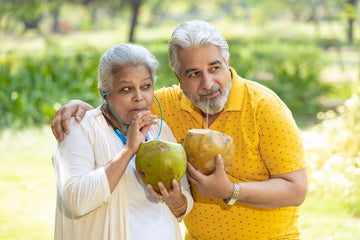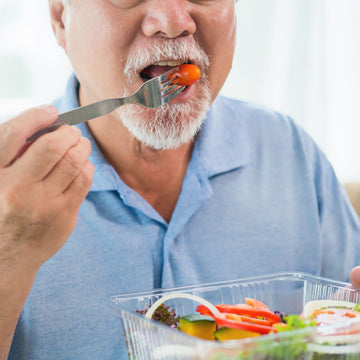
As the summer sun gets worse, it's essential to nourish your body with healthy foods that promote radiant skin and overall well-being. In this article, we'll explore the importance of healthy eating for elderly wellness and provide practical tips for maintaining summer skin health through nutrition.
Importance of Healthy Eating
Healthy eating is vital for people of all ages, but it becomes even more critical as we age. Proper nutrition supports optimal health, energy levels, and immune function, while also playing a significant role in maintaining skin health and vitality.
Understanding Elderly Nutrition
Elderly individuals have unique nutritional needs and may face challenges that impact their ability to maintain a balanced diet. Factors such as changes in metabolism, reduced appetite, and difficulty chewing or swallowing can affect nutrient intake and overall health.
Nutritional Tips for Summer Skin
During the summer months, it's essential to focus on foods that support summer skin health and hydration. Incorporating hydrating foods such as cucumbers, watermelon, and leafy greens into your diet can help maintain moisture levels and prevent dryness.

Hydration and Skin Health
Staying hydrated is crucial for maintaining healthy skin, especially during hot weather. Aim to drink plenty of water throughout the day and include hydrating foods with high water content in your meals and snacks.
Antioxidant-Rich Foods
Antioxidants play a vital role in protecting the skin from sun damage and oxidative stress. Include plenty of colorful fruits and vegetables such as berries, tomatoes, and bell peppers in your diet to benefit from their antioxidant properties.
Make Healthy Swaps for a Better Summer
Summer is full of picnics, parades, and vacations often laden with sweets, carbs, and restaurant meals. However, a few healthy swaps can significantly improve your nutrition:
- Ice Cream: Replace it with low-fat yogurt in shakes and smoothies. Add nut butter for extra protein.
- Refined Sugar: Use natural alternatives like honey, maple syrup, or dates in your baked goods.
- Sugary Drinks: Swap high-fructose juices and lemonades for water infused with flavors like lemon, cucumber, or lavender.
- Salad Dressings: Opt for olive oil, balsamic vinegar, and lemon juice instead of processed dressings.
-
Butter on Toast: Substitute with fresh avocado. For a super snack, add sliced tomato with a little salt and pepper.

These simple changes can help you enjoy your favorite summer foods while staying healthy.
Physical Activity
Regular exercise not only benefits physical health but also promotes circulation and skin vitality. Aim for at least 30 minutes of moderate exercise most days of the week to keep your body and skin in top condition.
Stress Management
Chronic stress can take a toll on skin health and contribute to premature aging. Practice stress-reducing techniques such as mindfulness, deep breathing, and yoga to promote relaxation and support skin resilience.
Sleep Hygiene
Quality sleep is essential for skin repair and regeneration. Establish a bedtime routine and create a sleep-friendly environment to ensure you get the restorative sleep your body needs to maintain healthy skin.
Aging Gracefully
Embracing the aging process with grace and acceptance is key to overall well-being. Practice mindful eating, savoring each bite and paying attention to hunger and fullness cues. Focus on building resilience and maintaining a positive outlook on life.
Maintaining healthy eating habits is essential for promoting summer skin health and overall wellness in elderly individuals. By incorporating hydrating foods, antioxidants, and omega-3 fatty acids into your diet, and embracing wellness tips such as regular physical activity and stress management, you can support radiant skin and aging gracefully.
FAQs
What are the nutritional needs of elderly individuals?
- Elderly individuals may have increased needs for certain nutrients such as calcium, vitamin D, and fiber to support bone health, immune function, and digestion.
How can I stay hydrated during the summer months?
- Drink plenty of water throughout the day and include hydrating foods such as fruits, vegetables, and soups in your diet to maintain hydration levels.
Are there any specific foods that promote skin health?
- Yes, foods rich in antioxidants, vitamins such as A, C, and E can support skin health and protect against sun damage and premature aging.
What are some stress-reducing techniques I can try?
- Stress-reducing techniques such as mindfulness, deep breathing exercises, yoga, and spending time in nature can help promote relaxation and support overall well-being.
How important is sleep for skin health?
- Quality sleep is essential for skin repair and regeneration. Establishing a regular sleep schedule and creating a sleep-friendly environment can help ensure you get the restorative sleep your body needs to maintain healthy skin.


